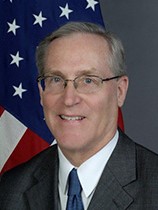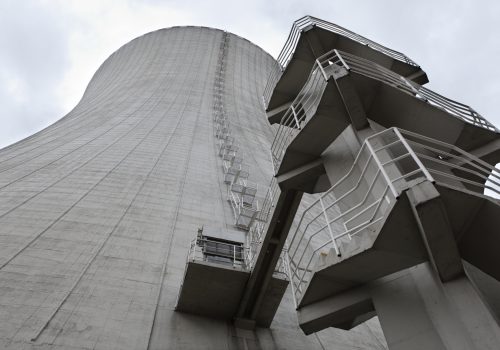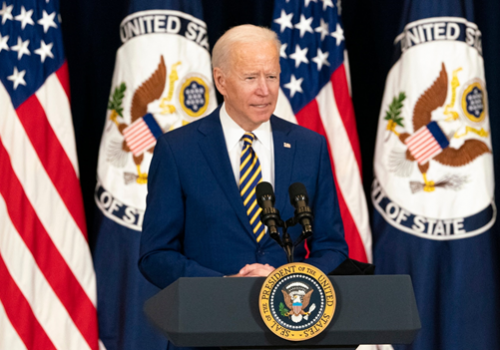Events
All Content
Dr. Robert F. Ichord, Jr. is a nonresident senior fellow at the Atlantic Council’s Global Energy Center where he is authoring a policy series on power sector transformation in developing countries and supporting the Council’s work on US nuclear leadership and US national security. He comes to the Atlantic Council after almost forty years of US government service in advancing US international energy policy and programs. He retired in January 2016 from the US Department of State, where he served as deputy assistant secretary for energy transformation in the Energy Resources Bureau from 2011 to 2015. In 2016 he established Ichord Ventures LLC, which provides energy analysis and consulting services to both the private and public sectors.
At the US State Department, he helped launch the new Energy Resources Bureau established by Secretary Clinton and worked to further US foreign policy interests in energy security, sustainable development, and global climate change. He shaped US policies and programs in clean energy with a special focus on electricity sector transition, improving energy efficiency, commercializing gas and renewable energy technologies, and increasing energy access in emerging nations.
Prior to working for the US State Department, Dr. Ichord worked for the US Agency for International Development (USAID) in the Europe and Eurasia Bureau as chief of energy and infrastructure. He managed and supported over $500 million in energy and infrastructure projects in Eastern Europe and the former Soviet Union and led US efforts to further the energy market transition and promote private investment in the region. He initiated the first US energy assistance programs in Eastern Europe in 1990-91 and in the New Independent States in early 1992. He created innovative, cost-sharing private public partnerships linking US utilities, regulators, and industrial companies with counterparts in Europe. He played a leading role in interagency efforts to close and improve the safety of high-risk, Soviet nuclear reactors, helping to craft and negotiate the G-7 agreement and follow-on programs to close the remaining Chernobyl reactors and those in Bulgaria and Lithuania. From 1979-1989, he was chief of energy and natural resources in the Asia, Near East, and Europe Bureau, playing a key role in developing $1 billion of new energy assistance projects in power generation and distribution, energy efficiency, and rural energy systems, and helped pioneer the concept of private power in Asia.
Prior to joining USAID’s Bureau for Asia in 1978, he was the point person for energy and developing countries at the US Department of Energy, representing the United States on non-member country issues at the International Energy Agency. He began his government career in 1976 with the Energy Research and Development Administration, working on international energy technology cooperation programs.
Dr. Ichord is a graduate of Denison University (BA), The Fletcher School of Law and Diplomacy (MALD), and the University of Hawaii (PhD), where he was awarded a fellowship from the East West Technology and Development Institute and completed a dissertation on Petroleum Development in Southeast Asia. He is the recipient of the George Marshall and the Science and Technology awards from USAID and received a Superior Honor Award from the Department of State for his work with Europe in forging the Athens Energy Treaty creating the Energy Community in the Balkans. Secretary Kerry awarded him the “The Secretary’s Career Achievement Award” for his distinguished service in 2016. He is author of numerous articles, Atlantic Council reports and blogs, and a book on Indonesia’s energy policy.




